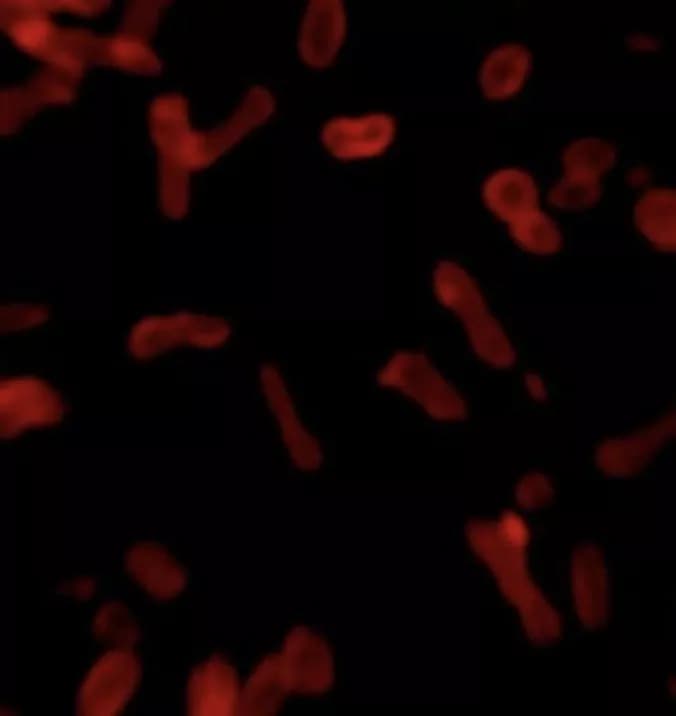
Plastic Nanoparticles Inspired By Nature Could Improve Cancer Drug Delivery
UNSW Sydney scientists have developed a way to control the shape of polymer molecules so they self-assemble into non-spherical nanoparticles -- an advance that could improve the delivery of toxic drugs to tumours.
"Very little in nature is perfectly spherical," says study senior author Professor Pall Thordarson of the UNSW School of Chemistry.
"Most biological structures like cells, bacteria and viruses come in a variety of shapes including tubes, rods, and squashed spheres, or ellipsoids. But it has proved very difficult for scientists to synthesise particles that are not perfectly round.
"Our breakthrough means we can predictably make smart polymers that shift their shape according to the different conditions around them to form tiny ellipsoidal or tubular structures that can encapsulate drugs.
"We have preliminary evidence that these more natural-shaped plastic nanoparticles enter tumour cells more easily than spherical ones," he says.
The study is published in the journal Nature Communications.
The UNSW project is a joint collaboration between Professor Thordarson and Scientia Professor Martina Stenzel, who are co-supervisors of study first author UNSW PhD candidate Chin Ken Wong. The team also includes Alexander Mason.
The scientists worked with polymer molecules that contain a water-soluble portion and a non-water-soluble portion, and which self-assemble into round, hollow structures, known as polymersomes, in solution.
Polymersomes are emerging as powerful new tools to deliver drugs to the desired part of the body, due to their high stability, chemical versatility and the ease with which molecules on their surface can be altered.
Their full potential, however, has been hindered by the difficulty of controlling their shape.
The UNSW team's novel chemical design is to add a non-water-soluble perylene polymer group to the membrane of the polymersome. The shape and size of the polymersome can then be adjusted by changing the amount of water in the solvent.
"It's a straightforward but elegant solution which we feel has great potential for making a wide range of complex polymer structures inspired by nature," says Professor Stenzel.
The team used cryogenic-transmission electron microscopy -- the technique for which the 2017 Nobel prize in Chemistry was awarded -- to determine how the polymer molecules were packed together in solution.
Materials provided by University of New South Wales. Note: Content may be edited for style and length.
Disclaimer: DoveMed is not responsible for the accuracy of the adapted version of news releases posted to DoveMed by contributing universities and institutions.
References:
Chin Ken Wong, Alexander F. Mason, Martina H. Stenzel, Pall Thordarson. (2017). Formation of non-spherical polymersomes driven by hydrophobic directional aromatic perylene interactions. Nature Communications. DOI: 10.1038/s41467-017-01372-z
Related Articles
Test Your Knowledge
Asked by users
Related Centers
Related Specialties
Related Physicians
Related Procedures
Related Resources
Join DoveHubs
and connect with fellow professionals

0 Comments
Please log in to post a comment.